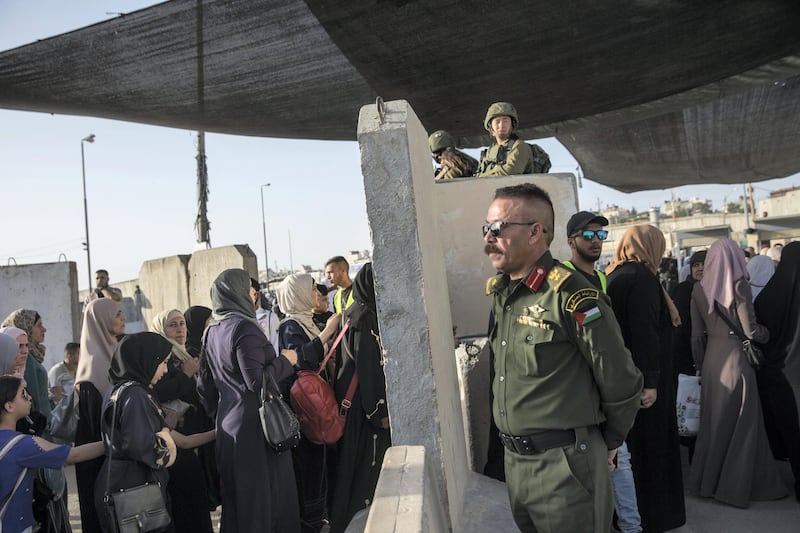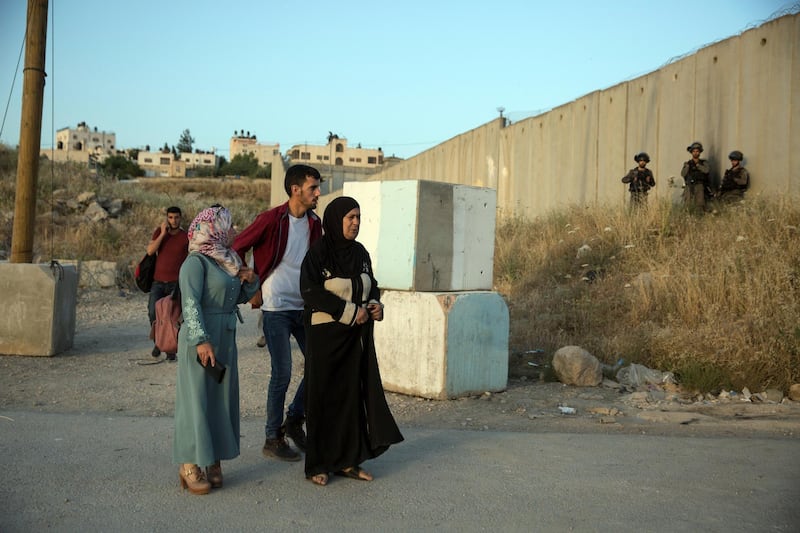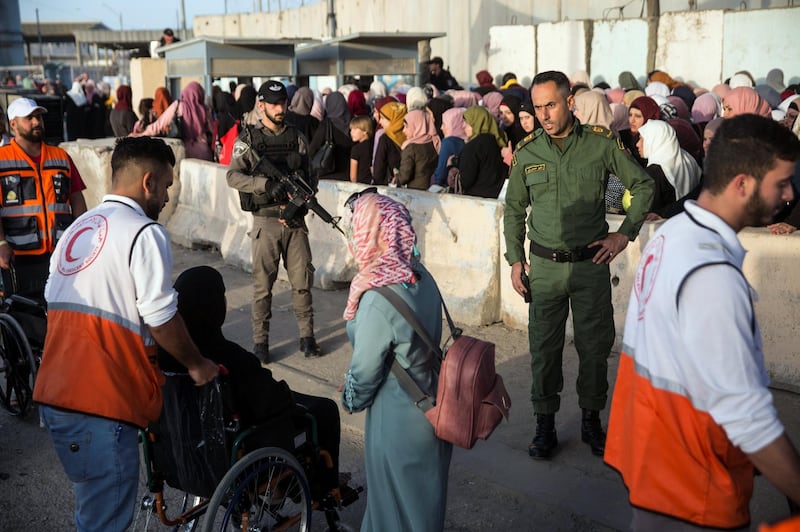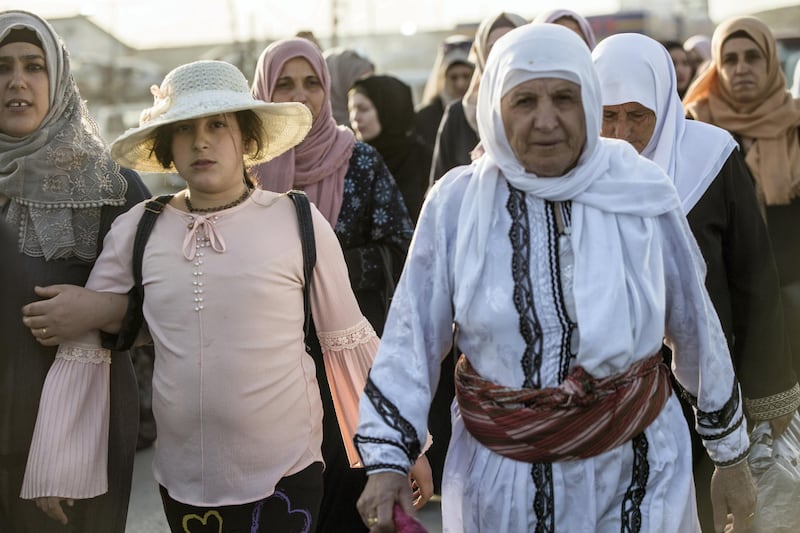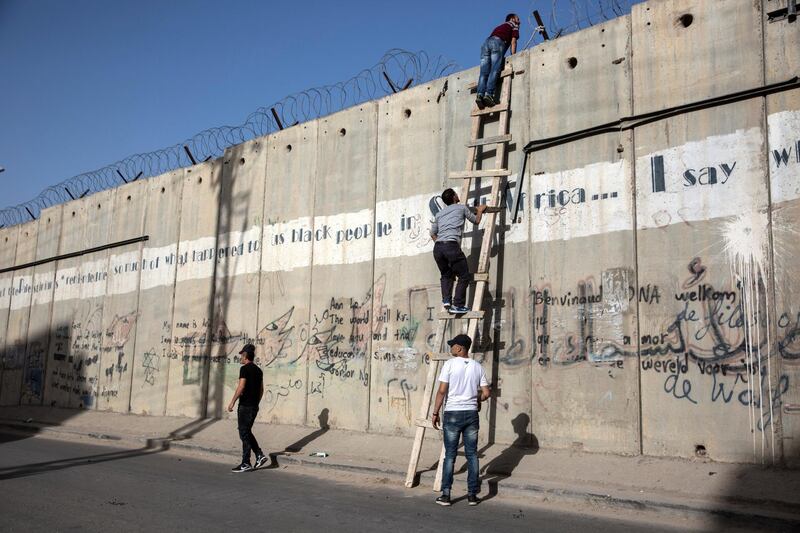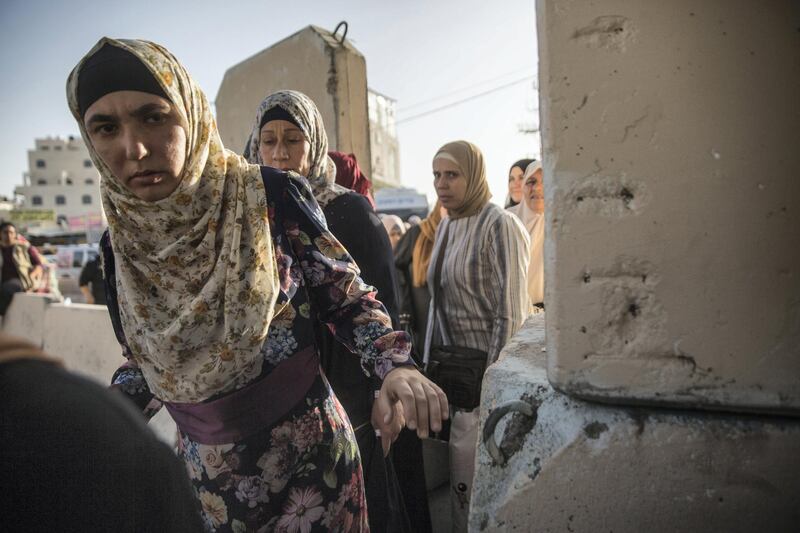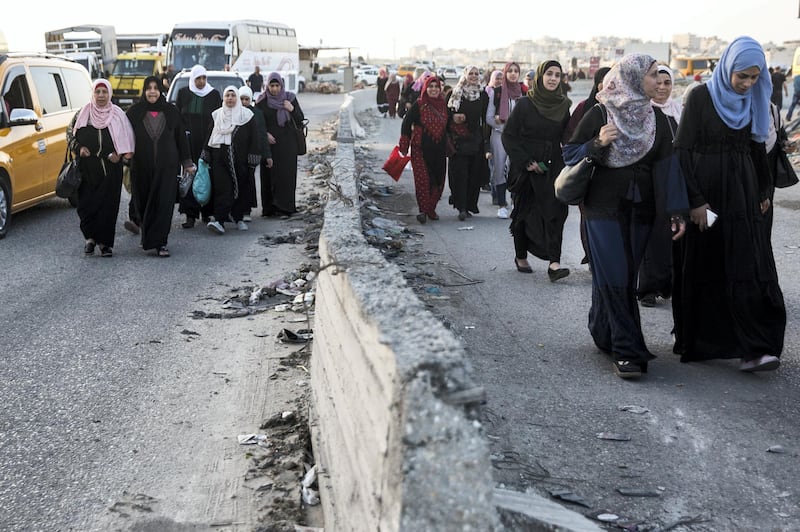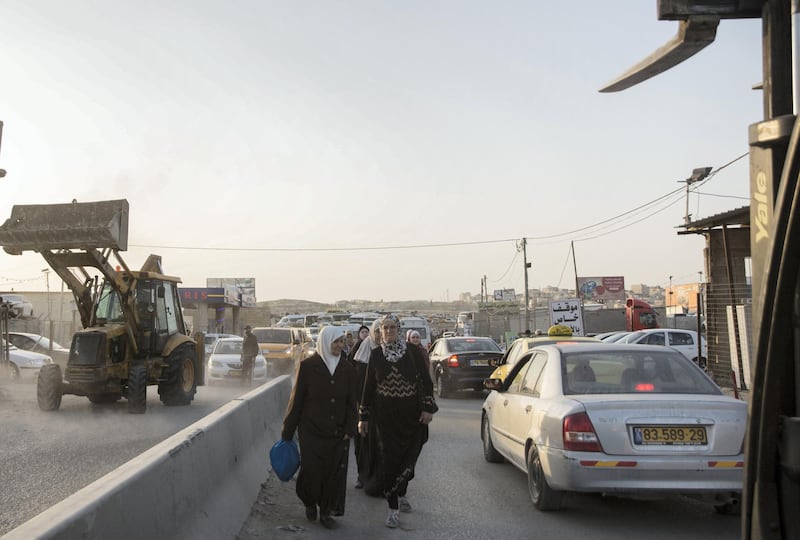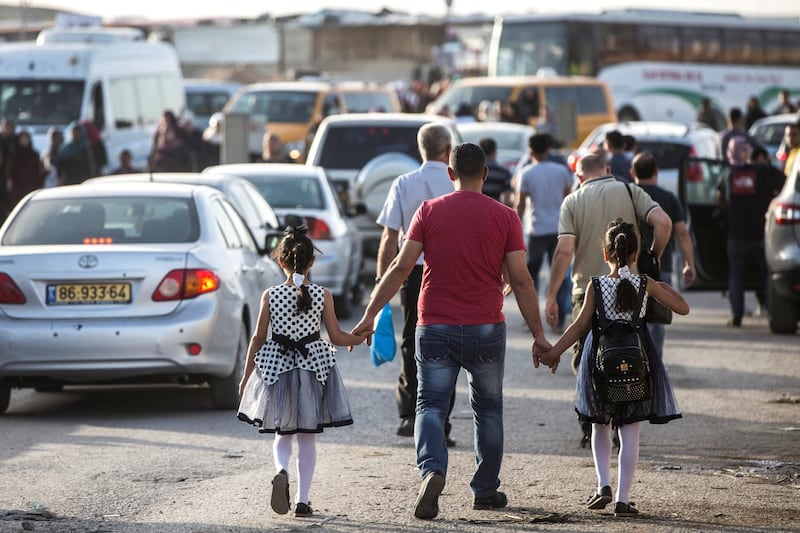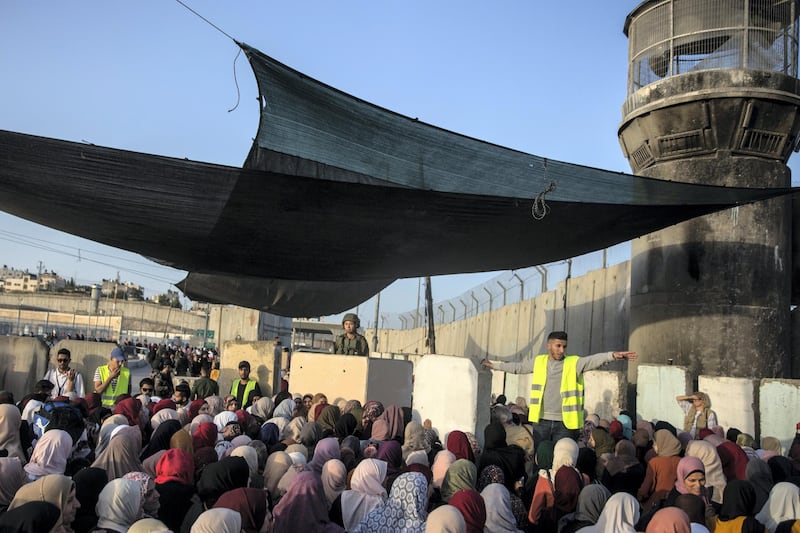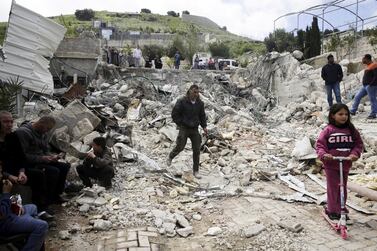Raed Hamdan hit the streets in his Palestinian chequered kaffiyeh and dark sunglasses to fight the day’s first battle: getting cars to follow traffic rules.
“If you see my hand it’s red because most of the time I stop them [drivers] by putting my hand on the car,” he said early on a workday in February. “Most of them don't like it. And they are saying, who are you?”
Mr Hamden is a member of the Qafr Aqab municipality, a dense no-mans-land of a Palestinian neighbourhood part of which is technically in occupied east Jerusalem but on the West Bank side of the Israeli wall separating the two. He is originally from the crowded Qalandia refugee camp a little up the road – the less well-known namesake of the notorious Israeli checkpoint beside it.
Qalandia checkpoint is the main crossing point into Jerusalem for Palestinians in the Israeli occupied West Bank. Around 26,000 Palestinians pass through daily by foot, car or bus, according to Israeli authorities. It is an often chaotic and demeaning place – dustier these days and more stressful as Israel’s $11 million (Dh 40.4 million) project to renovate the foot and car sections grinds on.
Israeli authorities say the work is intended to upgrade the facility for Palestinians; Palestinians say it just further entrenches the military occupation imposing it in the first place. The checkpoint has also been a frequent site of Palestinian stabbing attacks against Israeli soldiers, as well as tear gas and rubber bullets when Israelis break up protests there.
Mr Hamdan’s morning battles, however, are with the Palestinian drivers who go the wrong direction on the main road leading both to Qalandia and onto other West Bank cities. They do so to avoid the long line building up for the checkpoint.
“We are always saying that the checkpoint is the problem,” Mr Hamdan said. “Yes, the Israeli checkpoint, Qalandia checkpoint, is a big problem. But we are not going by the transportation rules” making “double problems.”
In February, Qalandia camp became so frustrated with Palestinian drivers trying to bypass the traffic and a spate of car accidents involving children that they closed off most roads to outside traffic. Volunteers like Mr Hamdan, in turn, took to the streets to direct drivers.
“The problem becomes worse and worse everyday,” said Aseel Eid, 27, who works for Palestine TV in Jerusalem and commutes daily from Qalandia camp. “Going to Jerusalem for work without the checkpoint and traffic would be twenty minutes. Instead, it takes at least an hour and a half.”
She continued, “It’s a problem for me inside because I become angry from all of this traffic. Also, you can see rubbish everywhere. No one is responsible. No one cares here.”
Parts of Qalandia, Qafr Aqab, and another nearby neighbourhood, Ram, are caught in a cacophonous situation: they are technically in Jerusalem, so the Palestinian Authority – based just down the road in Ramallah – is forbidden from operating here under the interim Oslo Peace Accords.
But because Israel put them on the West Bank side of the wall, the Jerusalem municipality and other Israeli authorities won’t come. So it is that there are no police, emergency services, or municipality services like rubbish pickup – and the only time Israelis enter is with military jeeps to make arrests or similar operations.
“People are now afraid to let their children go to the street because of this traffic,” said Ms Eid. “And there is no one that can solve it… You can wake up with this noise and you can go to sleep with this noise.”
Abu Ahmed Zakaria Fayala, 52, the Manager of the Fatah Office in Qalandia camp, offered three options for alleviating congestion. Israel could allow the PA police to control security in these areas; widen the road or move Qalandia checkpoint itself; or build a bypass road for drivers heading to other parts of the West Bank.
He and other urban planners favoured the latter. Mr Fayala blamed Israel for ultimately preventing any progress as they ultimately control developments in the area.
“There are solutions but unfortunately Israel doesn’t want there to be any,” he said.
Mohammad Hamden, a spokesperson for the Palestinian Ministry of Transportation, said that about three months ago PA officials met with several Israeli authorities about building a bypass road to run from Ram to Ramallah.
He said the PA had set aside 2 million shekels (Dh 2 million) for the project.
Palestinians said they had applied for and had not yet received a permit to build the bypass road. The bodies involved in the road’s path — the Jerusalem Municipality, Coordination for Government Activities in the Territories (COGAT) and the Israeli military — all said they had not received a permit application or were not responsible jurisdiction wise. A COGAT spokesperson confirmed that COGAT was part of a meeting, along with the Jerusalem municipality and Israeli military, about the issue.
Conditions at Qalandia vary daily depending on how strictly soldiers are checking each car, and whether other checkpoints available to East Jerusalem ID holders and PA officials are open.
Friday mornings during Ramadan is the most crowded foot traffic time, as tens of thousands of Palestinians from all around the West Bank cross to pray in Jerusalem.
This year, however, PA police were on the Palestinian side directing traffic, standing sometimes almost side-by-side to Israeli soldiers stationed behind concrete barriers. Meanwhile, young men who can't easily get permits into Israel scoured the wall for places to climb over.
When there is a Palestinian attack inside Israel or a rise in tensions, they will often close a smaller checkpoint on the other side of Ramallah that Palestinian officials can usually use. The regular loss of the privileged access is what has ultimately spurred the PA, very unpopular with much of the Palestinian public, to act and start pushing for an alternative, said Mr Fayala.
“Unfortunately, usually the leader sitting in their seat or at the table doesn’t feel the sufferings of the people,” he said.
